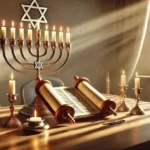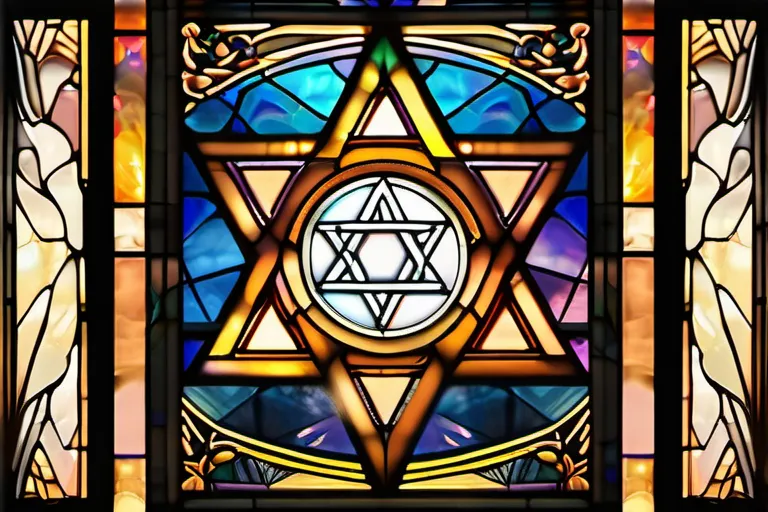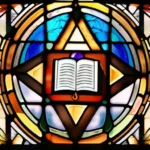Explore the unique beliefs, attributes, and relationships between Jews and their divine entity
Delve into the profound and complex concept of God in Judaism. From the Shema to the Tzimtzum, uncover the intricacies of Jewish monotheism.
The Nature of God in Judaism
In Judaism, the concept of God (Hashem) is unique and deeply rooted in the beliefs and practices of the faith. One of the most fundamental attributes of God in Jewish thought is His unity, or Echad. This belief challenges the notion that there could be multiple gods by asserting that God is one indivisible entity, yet encompasses all aspects of existence. How can something so vast and complex be seen as a single, unified being?
The idea that God possesses omnipotence—that He has infinite power—raises another intriguing question: What does it mean for Hashem to have unlimited power? Does this imply that anything is possible within His realm, or are there limits even to His capabilities? And if so, what would those limits be?
Omniscience, the attribute of having infinite knowledge, also poses profound questions. If God knows everything, does He know our deepest thoughts and intentions before we think them? How does this affect free will? Is knowing everything a burden or a blessing for God? These attributes together paint a picture of a divine being who is beyond human comprehension, yet intimately involved in the world.
The relationship between Jews and their divine entity is one of profound respect and awe. How do these attributes shape our understanding of God’s role in our lives? Do we see Hashem as an omnipotent ruler or a benevolent guide? These questions have been pondered by Jewish thinkers for centuries, leading to a rich tapestry of interpretations and traditions.
In exploring the nature of God, one cannot help but wonder how these attributes interplay with each other. Can a being that is both omnipotent and omniscient be limited in any way? The answers to these questions have shaped Jewish theology, guiding our understanding of God’s character and our relationship with Him.
Understanding the fundamental attributes of God in Judaism opens up a world of thought and reflection. It challenges us to think beyond the boundaries of human knowledge and experience, inviting us to engage deeply with the divine presence in our lives. How do you see these attributes influencing your own understanding of God?
The Tzimtzum: The Jewish Concept of Creation
Imagine God as the ultimate artist, wielding brushstrokes that are invisible yet undeniably powerful. In Jewish tradition, this divine creativity is encapsulated in the concept of Tzimtzum. Tzimtzum, a term often translated as ‘withdrawal’ or ‘constriction,’ describes how God deliberately retracts His infinite presence to make space for creation.
How can such a powerful entity retract itself? The idea is mind-bending, like the artist stepping back from their masterpiece to observe it without overshadowing it. This withdrawal allows for the existence of the finite and the material world—a paradoxical act where God’s absence creates the very possibility of His presence.
But why would God need to Tzimtzum? Isn’t He all-powerful, omnipresent? The answer lies in the complexity of creation. If God were entirely present everywhere and always, there would be no room for free will or choice. Through Tzimtzum, God makes a subtle but crucial adjustment, creating a space where existence can unfold.
Think about it this way: if the entire universe was filled with nothing but an infinite field of light, there would be no darkness in which to see. Just as turning off some lights allows us to appreciate those that remain on, Tzimtzum gives birth to a world where light and dark, existence and non-existence, can coexist.
This concept is not just theoretical; it has profound implications for how Jews understand their relationship with God. By recognizing the space created by Tzimtzum, we acknowledge that our world is real and meaningful, despite its imperfections. It’s a reminder that even in the most challenging moments, there is still room for divine intervention and guidance.
The Shema: The Declaration of Faith
The Shema Yisrael is more than just a prayer; it’s a declaration that defines Jewish faith and identity. When we recite ‘Shema, Eloheinu M’dinyanu‘, we’re not just repeating words—these are the foundation stones upon which our belief in one God is built.
Imagine a house built on a single pillar, where that pillar represents the unity and indivisibility of God. The Shema serves as that pillar, holding together the structure of Jewish faith. It’s a powerful reminder that G-d is not just one aspect or another; He encompasses all aspects of existence.
But what makes this prayer so central to Judaism? Could it be because every day, twice a day, Jews reaffirm their commitment to monotheism through these simple yet profound words? The Shema isn’t just recited in synagogues; it’s woven into the fabric of daily life—on necklaces worn by children and inscribed on the walls of homes.
As we delve deeper, we see that the Shema is not merely a statement of faith but also a call to action. It encapsulates the essence of G-d‘s commandments: love Him with all your heart and soul. How can we truly love something if we don’t understand its full meaning? The Shema is our guide, reminding us that loving G-d involves not just emotional devotion but also a commitment to ethical living.
And what about the second part of the Shema, ‘V’ahavta bchol derekha‘? It’s a reminder that love must be sincere and all-encompassing. Just as a river flows without interruption, so too should our love for G-d. This part of the prayer serves as a bridge between belief and practice, showing us that living in accordance with God’s will is not just about ritual but about every aspect of life.
The Shema isn’t just about personal piety; it’s a communal declaration. It binds Jews together, reinforcing our shared history, traditions, and destiny. Each time we recite these words, we reaffirm the covenant between G-d and the Jewish people, a bond that stretches back through millennia.
In essence, the Shema is more than a prayer; it’s a lifeline connecting us to our past, present, and future. As we continue on this journey of faith, let us remember the profound impact of these words and strive to embody their spirit in every moment of our lives.
God’s Relationship with Israel
Imagine walking through the ancient streets of Jerusalem, feeling the weight of history underfoot, and suddenly hearing a voice echo through time. This isn’t just any voice; it’s God speaking, making promises to a people that would shape their destiny for millennia. The covenant between God and the Jewish people is like a sacred bond, woven into the very fabric of Jewish identity.
How can we understand this covenantal relationship? It’s not just about divine promises; it’s also about the chosenness of Israel. But what does it mean to be ‘chosen’? Is it a blessing or a burden? For many Jews, being ‘the chosen people’ is both an honor and a responsibility. It implies a unique role in the world, a moral duty to uphold justice and righteousness.
Consider the story of Mount Sinai, where God gave the Torah to Moses. This event was more than just receiving laws; it was a reaffirmation of the covenantal bond. The Torah, with its commandments and teachings, serves as the blueprint for this relationship. Each mitzvah (commandment) is like a thread in a tapestry, connecting individuals to God and each other.
But what about those outside Judaism? The concept of chosenness might seem exclusive or even exclusionary. Yet, many Jews believe that the principles found within their tradition—love for one’s neighbor, seeking peace, caring for the vulnerable—are universal values meant for all humanity. This is why the Noahide Laws are so significant; they represent a broader moral framework accessible to everyone.
So, as we delve into this complex relationship, let us ask ourselves: How do these ancient traditions shape our modern understanding of faith and responsibility? In navigating the covenantal journey, can we find relevance for today’s world?
The Role of God in Jewish Ethics
How does God influence the moral compass of the Jewish people? Is He simply an abstract concept, or do His commandments shape every aspect of ethical behavior?
The Ten Commandments are a prime example of how God’s directives impact Jewish ethics. These commandments, delivered through Moses on Mount Sinai, are not just rules to be followed; they are principles that guide behavior and foster a sense of justice and morality. By observing these commandments, Jews strive to live a life in accordance with God’s will.
Consider the first commandment: “I am the Lord your God.” This is more than just a declaration; it sets the foundation for the entire ethical framework. It implies that every action should be filtered through the lens of what pleases God, ensuring that one’s behavior aligns with divine expectations.
The Noahide Laws also play a crucial role in shaping Jewish ethics beyond the specific community. These seven commandments, which apply to all humanity, emphasize moral principles such as respecting life, honesty, and fairness. By adhering to these laws, Jews contribute to the broader ethical fabric of society, reflecting God’s presence in every interaction.
Imagine a world where everyone followed these guidelines—wouldn’t it be a more just and compassionate place? The impact of God on Jewish ethics is profound, influencing not only personal behavior but also societal norms. Through these commandments, Jews are constantly reminded to seek righteousness and uphold justice, mirroring the very essence of God’s reign.
In many ways, the ethical framework shaped by God’s commandments can be seen as a roadmap for living a life that is not only meaningful but also beneficial to society. It’s a journey where every step is guided by divine wisdom and purpose.
God in Jewish Mysticism
Imagine God as a master painter, creating a vast canvas that unfolds over centuries, each brushstroke representing generations of Jewish thought and practice. In the world of Kabbalah and Chassidism, this divine artist is not just an observer but a participatory creator, deeply involved in the fabric of existence.
Kabbalah, often described as the ‘Tree of Life,’ delves into the mystical dimensions of God. Here, God is seen as the infinite source from which all finite worlds and beings emanate. Kabbalistic texts like the Zohar offer a rich tapestry of spiritual insights, weaving together metaphors such as light, sparks, and vessels to describe how divine energy manifests in our world.
Chassidism, on the other hand, emphasizes God’s immanence—His presence felt deeply within every aspect of creation. For Chassidic teachings, God is not distant but intimately involved in daily life and mundane activities. This belief encourages a personal and experiential relationship with the divine, where God‘s presence can be encountered through joy, song, and even the simplest acts of kindness.
Both traditions provide unique lenses through which Jews can approach their understanding of God. Kabbalah offers a profound exploration into the nature of divinity, while Chassidism encourages a more experiential connection. Together, these mystical paths enrich our conception of God’s role in the world, reminding us that beyond the traditional commandments and ethical guidelines lies an intricate web of divine interaction.
How do you see your own relationship with God, woven into this rich tapestry of Jewish mysticism? Do you find yourself drawn more towards the contemplative depths of Kabbalah, or perhaps the vibrant joy of Chassidism?
Conclusion
 Gain a deeper appreciation for the Jewish understanding of God and its impact on Jewish culture and daily life.
Gain a deeper appreciation for the Jewish understanding of God and its impact on Jewish culture and daily life.











